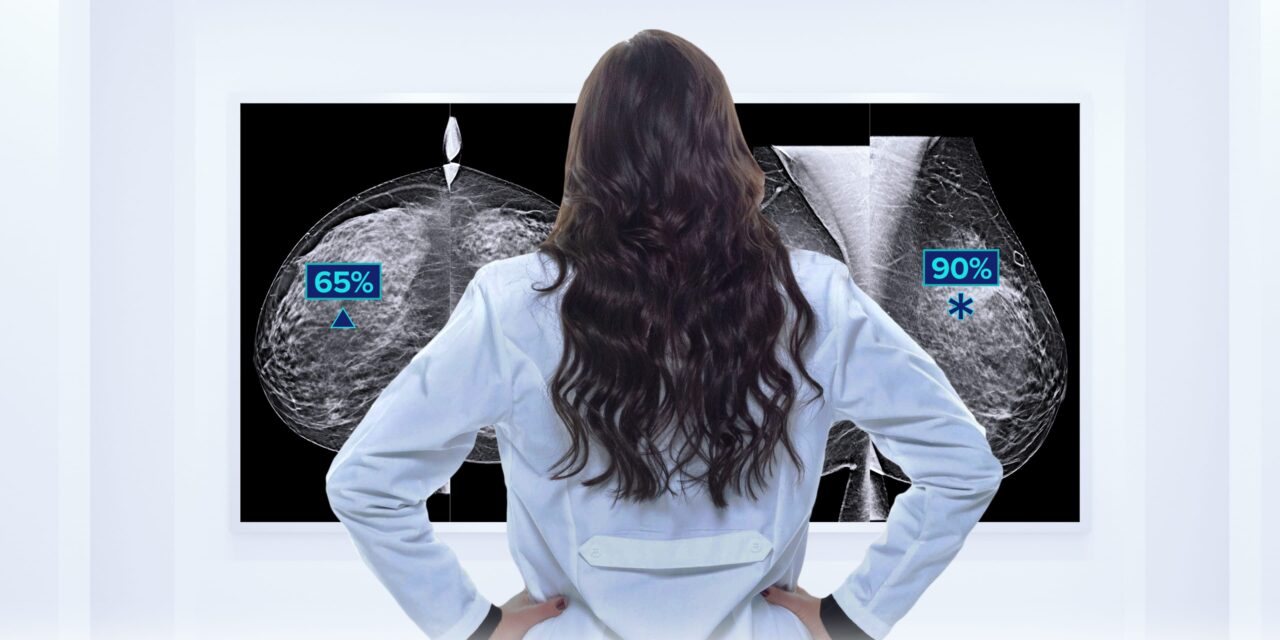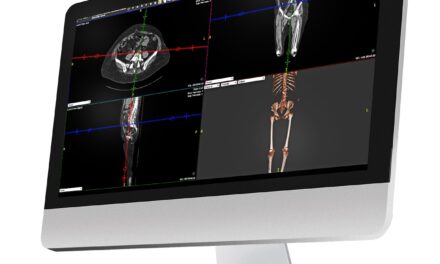The research suggests AI may help identify more aggressive breast cancers and perform comparably to experts in breast cancer screening.
New data from two studies evaluating an artificial intelligence (AI)-powered mammography technology indicate it may help identify more aggressive breast cancers and perform comparably to radiologists in cancer detection. The findings on Hologic’s Genius AI Detection solution were presented at the European Society of Breast Imaging Annual Scientific Meeting.
“These results underscore AI’s ability to make breast cancer screening more accurate and efficient, and its potential to provide valuable insights about each patient’s unique tumor biology,” says Mark Horvath, president, breast and skeletal health solutions at Hologic, in a release.
Research Highlights AI’s Diagnostic Potential
The first study, conducted at Massachusetts General Hospital in the US, evaluated whether AI scores on 3D mammography exams are associated with tumor characteristics. Researchers retrospectively analyzed approximately 600 exams of biopsy-proven cancers performed between 2016 and 2019. The analysis found that the AI system assigned higher case scores to higher-grade tumors and node-positive cancers, which are features associated with more aggressive disease.
“AI is quickly becoming a valuable second set of eyes for radiologists, helping to flag cancers sooner, and our study suggests an added benefit of identifying those that are more likely to be aggressive,” says Manisha Bahl, MD, associate medical director of quality at Mass General Brigham and associate professor of radiology at Harvard Medical School, in a release. “For patients with more aggressive cancers, earlier detection allows treatment to begin sooner, which can improve clinical outcomes.”
A second study, presented by researchers from the University of Nottingham, UK, compared the performance of the AI solution with that of 108 radiologists from the UK and US. Both the AI and the radiologists reviewed 75 clinically challenging breast cancer cases.
The results showed that the AI technology demonstrated similar performance to radiologists in finding cancers, with higher sensitivity but lower specificity. According to the researchers, these early findings suggest AI could be a useful tool to help radiologists diagnose breast cancer early and could potentially help address workforce shortages in countries where each mammogram is required to be checked by two radiologists.
In addition to its AI-powered technologies, Hologic is showcasing its latest breast surgery innovations at the conference, including the next-generation Sentimag Gen 3 device for tumor localization and breast cancer staging. The product was developed by UK-based acquisition Endomag and was launched in Europe earlier this year.
Photo caption: Genius AI Detection
Photo credit: Hologic
ID 119285809 | Ai © Leowolfert | Dreamstime.com





